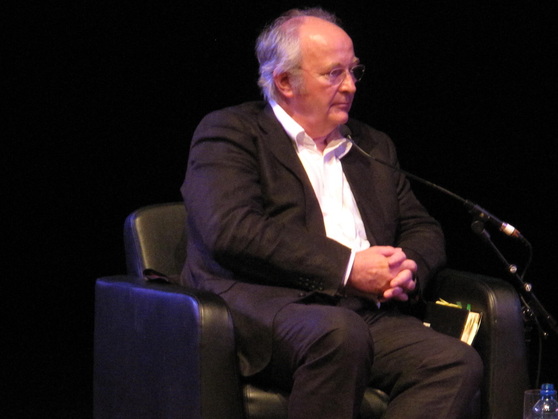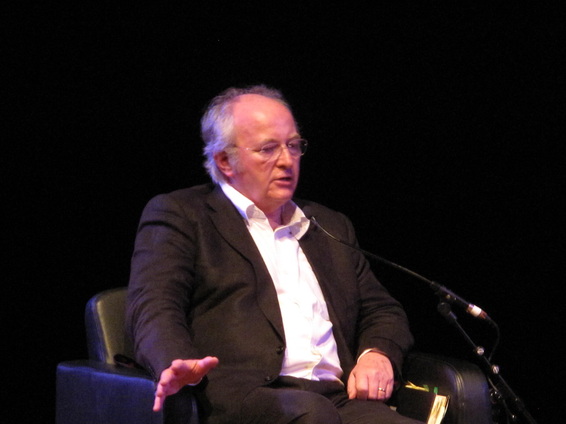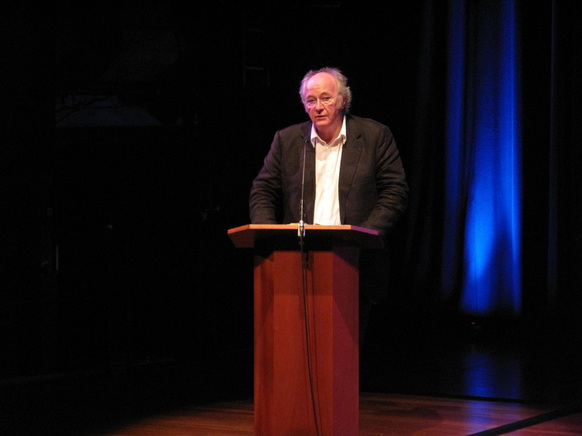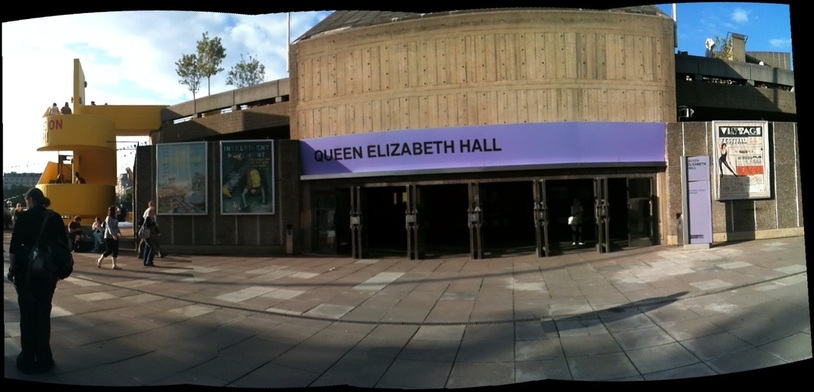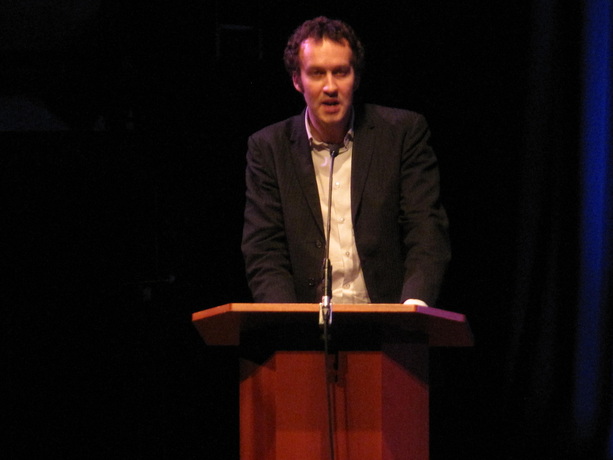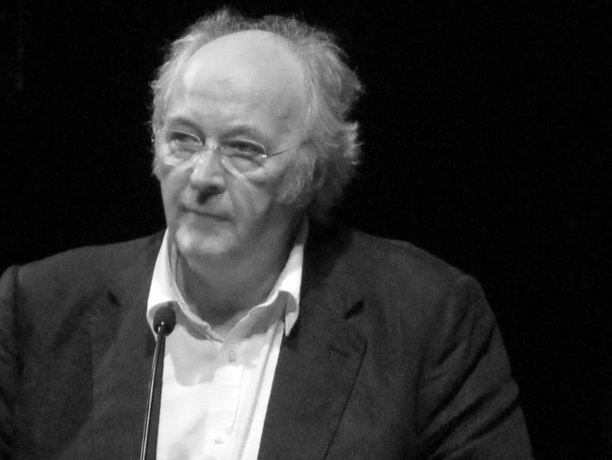2 July 2011
I originally wrote this for the London Literature Festival 2011 at the Southbank Centre
.
.
VITALITY VS AUTHORITY: AN EVENING WITH PHILIP PULLMAN
The London Literature Festival kicked off on Thursday 30th June with novelist power-house Philip Pullman speaking in Southbank Centre’s Queen Elizabeth Hall (QEH), as part of the National Treasures strand. Let’s get my bias out of the way straightaway, His Dark Materials are some of my favourite works of fiction. Ever. I’ve seen Pullman speak twice before – once at the National Theatre, next door to the QEH, in conjunction with the fantastic adaptation of his trilogy (the less said about the film the better!); and the second at the Southbank Centre with scientist-writer David Eagleman as part of the latter’s takes on the afterlife, Sum. Third time then. It’s not just fandom which drew me, I had a feeling Pullman had more to talk about than I had already heard.
Introduced by Senior Literature Programmer Martin Colthorpe, the interviewer for the event, Peter Kemp, builds further with a sweep over Pullman’s career, highlighting a particular strand of his work – the stifling of vitality through authoritarian forces; which will come up time and again in the conversation. We regress first, as Pullman is told he fires the imagination of children, what fired his? It was not the aftermath of the Second World War as supposed (he was five years old during the original Festival of Britain in 1951 – Southbank Centre is celebrating the 60th anniversary this year, with the Lit Fest playing its part); but comics – a fluid way of telling story, and linked to cinema. And with a great scoop readers, Pullman tells us that he was writing a comic, John Blake, before the publishers ran into trouble, and now he is turning it into a film script!! I don’t know about you, but I can’t chuffing wait!
We are led through the author’s early life – a voracious reader, learned with Enid Blyton’s Noddy, and his use of libraries, which he labels a “treasure chest”. Pullman expresses his horror at their closing, calling it “an act of shameless vandalism”; and this ties in with us losing a sense of “civic decency”. What I’d been waiting for – his take on current politics, which the other talks I attended had not covered. Pullman comments on the grammar school, secondary modern divide; and how he taught before the National Curriculum: “lesson plans handed down from Whitehall”. That’s my boy Philip, don’t hold back! His own schooling was enjoyable, fortunate that his institution was not ruled by fear and stupidity. He goes into further detail about his formative times and motivations. The particular thing he mentions that his fans will be interested in, is that when he put on plays as a teacher, he wanted both the children and the adults to enjoy them; not separate layers for each, but as a whole. He hopes to entertain a mixed audience.
|
|
|
What I’d been waiting for, Pullman goes into his influences and thought processes in creating His Dark Materials. He doesn’t like fantasy, which raises a laugh, but he qualifies that remark – he means elves and swords. He thinks Tolkien’s Lord of the Rings is not grounded in human psychology, contrast Wagner’s Ring Cycle. The genesis of the daemon idea is explained; and his most exciting moment as a writer was the realisation that children’s daemons change, while adults didn’t - the difference between innocence and experience. Humbly and interestingly, it’s revealed that the author thought the third part needed another six months to hone, but he felt pressure (not from the publisher) to get it out there; the demand was heavy.
The climax to the event was Pullman talking about his latest, The Good Man Jesus and the Scoundrel Christ, which started as an allegory and morphed into a novel. There was much trying out to get the sound of the gospel. Language is texture, rhythm, heft, weight, etc. He rolls in his mouth to test. And then he read from it – the temptation scene. The audience kept up the pace, and asked excellent questions – from the dismantling of religion through fiction or polemic, to the process of writing. What an exciting event – the time zooms – and Philip Pullman once again proves himself articulate and engaged.
The climax to the event was Pullman talking about his latest, The Good Man Jesus and the Scoundrel Christ, which started as an allegory and morphed into a novel. There was much trying out to get the sound of the gospel. Language is texture, rhythm, heft, weight, etc. He rolls in his mouth to test. And then he read from it – the temptation scene. The audience kept up the pace, and asked excellent questions – from the dismantling of religion through fiction or polemic, to the process of writing. What an exciting event – the time zooms – and Philip Pullman once again proves himself articulate and engaged.


